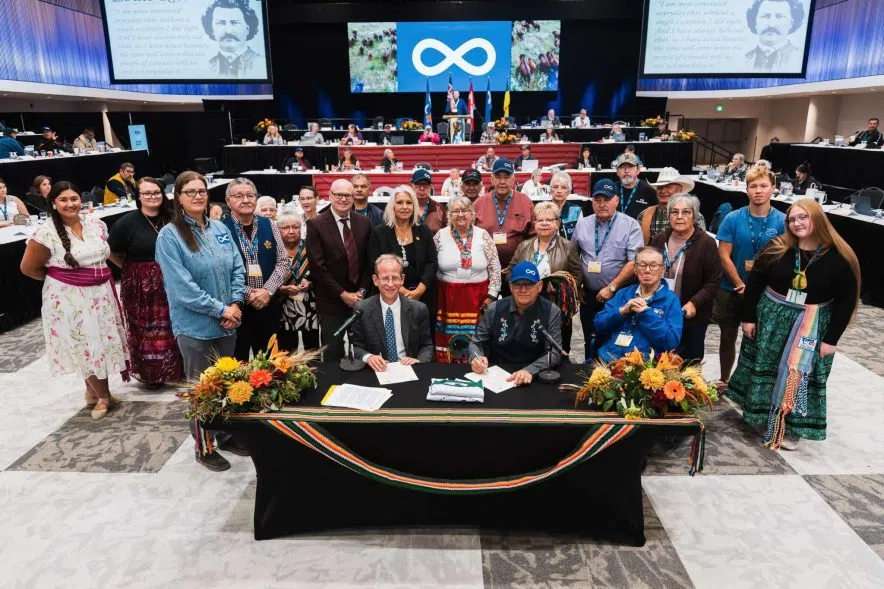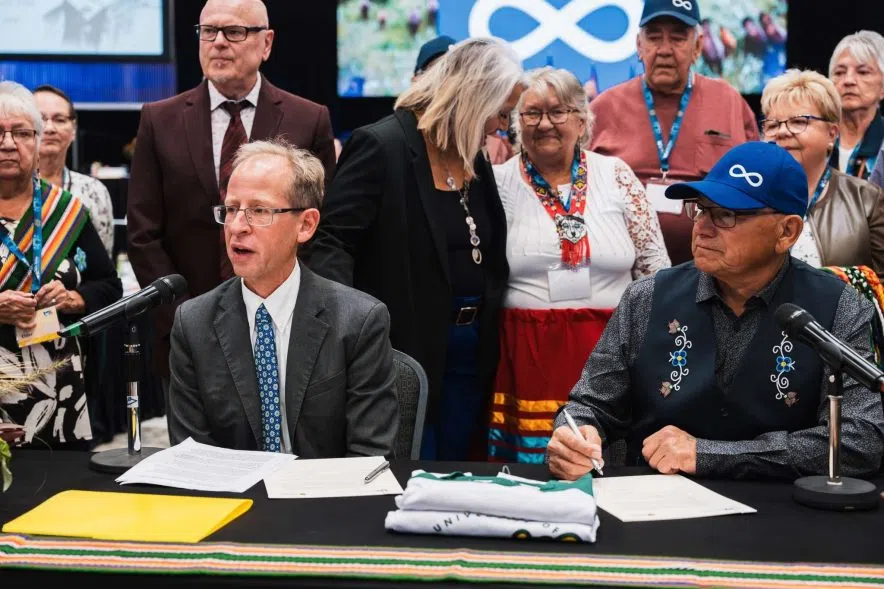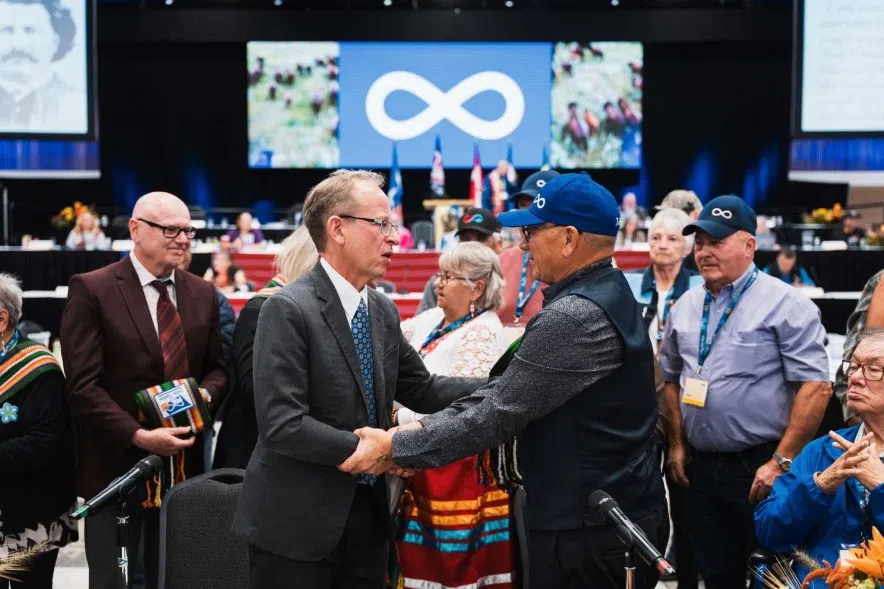Concerns about “pretendians;” people claiming Indigenous identity, are driving new partnerships in Saskatchewan’s post-secondary sector.
The University of Regina and the Métis Nation – Saskatchewan (MN-S) government have signed a citizenship agreement that formally recognizes MN-S citizenship and ensures equity-based opportunities on campus are reserved for verified Métis citizens.
Read more:
- Métis Nation-Saskatchewan declares state of emergency around drugs, violence, gangs
- Minister says Indigenous advisory council just the start of major project talks
- ‘We were never expecting this’: URSU VP says eviction was too sudden
“This agreement makes sure the right people get the right funding,” said MN-S president Glen McCallum. “If people come to the university and they say they’re Métis, they have to verify by having the citizenship card, and it’s fair that the right people get the funding.”
The agreement, which was signed on Sept. 7, establishes a process for the university to work directly with MN-S to confirm citizenship when students, staff or researchers apply for Métis-specific opportunities. Those include scholarships, admissions, hiring and research funding.

University of Regina president Jeff Keshen (front left) and Métis Nation–Saskatchewan president Glen McCallum (front right) sign a citizenship agreement surrounded by Métis citizens and leaders. (Métis Nation – Saskatchewan Facebook)
University of Regina President and Vice-Chancellor Jeff Keshen said the agreement reflects both fairness and reconciliation.
“I look forward to the mutual benefits and opportunities that this agreement will create in our province, at our university, and for the Métis people who are such an important part of Saskatchewan’s historical, cultural, economic and educational fabric,” Keshen said.
McCallum said the U of R deal builds on years of work with the University of Saskatchewan, where MN-S signed a series of agreements ranging from a memorandum of understanding to citizenship verification and research partnerships. McCallum said the U of R had been “watching from the sidelines” before coming forward.
“They got interested because of the outcomes,” McCallum said. “It’s our obligation to create systems that protect our citizens and make sure the right people access scholarships, admissions and jobs. That’s why these agreements matter.”
The agreement comes as questions about Indigenous identity claims have made national headlines, including cases where individuals have been exposed for falsely claiming status. McCallum said MN-S will not criticize individuals but emphasized the need for a clear process.
“Anyone can claim whatever they want to be, but when there’s a system in place, it ensures fairness,” McCallum said. “That’s why we built our registry.”
That registry has grown dramatically under his leadership from about 2,500 citizens in the past years to more than 37,000 today. McCallum said more than 11,000 Métis citizens in Saskatchewan are now pursuing post-secondary education, and the government has a responsibility to support them.
“A lot of our young citizens want to be doctors, scientists or teachers,” he said. “Having a system that validates who they are ensures that the right supports go to them, and not those pretending.”

U of R president Jeff Keshen (left) and MN–S president Glen McCallum (right) finalize the citizenship agreement during the MN–S assembly. (Métis Nation – Saskatchewan Facebook)
The university said the agreement aligns with its Indigenous Engagement Strategic Plan and builds on long-standing partnerships with Métis communities, including the Gabriel Dumont Institute.
McCallum added the deal represents more than just verification. He called it a step towards reconciliation and a sign of respect for Métis self-government in Saskatchewan.
“It’s beautiful to see,” McCallum said. “These relationships give our citizens opportunities to create careers and contribute to the well-being of our province and country.”
— with files from 980 CJME’s Lisa Schick











